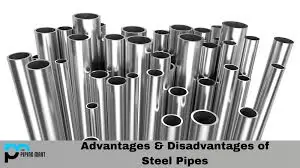Welded steel pipes are among the most widely used products in the steel industry today. From high-rise buildings and water transportation systems to oil and gas pipelines, welded pipes serve as the backbone of various critical infrastructures. Their durability, strength, and cost-effectiveness make them the go-to choice for contractors, fabricators, and industrial engineers. This article explores everything you need to know about welded steel pipes, why they are the best choice for many applications, and how to find high-quality options at a cheap price without compromising on performance.
Table of Contents
ToggleWhat Are Welded Steel Pipes?
Welded steel pipes are manufactured by rolling flat steel plates or strips into a cylindrical shape and then welding the seam using various techniques. The welding process can be performed using electric resistance, submerged arc, or other specialized methods, depending on the pipe’s intended use.
There are three primary types of welded steel pipes:
-
ERW (Electric Resistance Welded) – Commonly used for water pipelines, fencing, scaffolding, and low-pressure systems.
-
LSAW (Longitudinal Submerged Arc Welded) – Ideal for transporting oil and gas due to its strength and straight seam welding.
-
Spiral Welded (SSAW) – Produced by spirally rolling steel plates and welding the edges, perfect for large-diameter pipe requirements.
Each type is suited to different applications based on size, pressure capacity, and project requirements.
Why Choose Welded Steel Pipes?
1. Cost Efficiency
One of the main advantages of welded steel pipes is their lower production cost compared to seamless pipes. Since they are made from flat steel plates or coils and don’t require high-pressure piercing or extrusion, welded pipes are significantly more affordable to produce. For large-scale projects that require kilometers of pipeline or vast structural support, the savings can be substantial.
2. Availability and Versatility
Welded pipes are produced in massive quantities worldwide and are readily available in standard and custom dimensions. They can be easily modified, cut to size, threaded, or coated depending on the specific needs of a project. This adaptability makes them an attractive option across industries, from agriculture and manufacturing to energy and real estate development.
3. Wide Range of Applications
Welded steel pipes are used in a diverse range of sectors:
-
Construction: Columns, supports, bridges, and foundations
-
Water Supply Systems: Municipal pipelines and irrigation systems
-
Oil and Gas: Long-distance transmission of crude oil, natural gas, and refined fuels
-
HVAC and Fire Protection: Water, steam, and gas lines in buildings
-
Automotive and Engineering: Parts like exhaust pipes and drive shafts
Because they are strong, durable, and resistant to high pressures (when properly manufactured), welded pipes play a crucial role in both heavy-duty and everyday applications.
4. Strength and Durability
Modern welded pipes undergo rigorous quality control and non-destructive testing to ensure seam strength and uniform wall thickness. With advancements in welding technology, today’s ERW and LSAW pipes are comparable in strength to many seamless pipe alternatives. Some grades offer excellent resistance to corrosion and abrasion, especially when galvanized or treated with protective coatings.
5. Environmentally Friendly
Steel is one of the most recyclable materials on the planet. Many welded pipes are made from recycled steel, making them a more sustainable choice. Additionally, because of their ease of installation and long service life, they reduce maintenance needs and environmental waste over time.
How to Find the Best Welded Steel Pipes at a Cheap Price
Finding affordable welded steel pipes without sacrificing quality is entirely possible with the right approach. Here are some tips to ensure you get the best value:
1. Buy Direct from Manufacturers or Large Distributors
Eliminate the middlemen by sourcing your pipes directly from manufacturers or authorized steel distributors. This often results in bulk discounts and better pricing. Some top global suppliers and local mills also provide direct-to-site delivery, reducing logistics costs.
2. Compare Quality and Certifications
Always ensure the pipes meet international quality standards such as:
-
ASTM (American Society for Testing and Materials)
-
API (American Petroleum Institute)
-
BS/EN (British/European Standards)
-
ISO certification
Quality certifications not only guarantee performance but also ensure your project meets legal and safety standards.
3. Request Bulk Order Discounts
For large-scale projects, most suppliers offer tiered pricing based on volume. Ask for a quotation based on your total requirements, and negotiate for free delivery or value-added services such as galvanizing or threading.
4. Look for Local Suppliers with Stock Inventory
Local steel suppliers with warehouse stock can provide faster delivery, lower freight costs, and better customer service. Countries like the UAE, India, China, and Turkey have many reputable steel suppliers offering competitive prices on welded pipes.
5. Consider the Right Material and Coating
Not all applications require stainless steel or heavy-duty coatings. If you’re using welded pipes for indoor or non-corrosive environments, opting for carbon steel or mild steel without special coating can significantly reduce the cost.
Common Grades Available
Depending on the application, some common grades for welded steel pipes include:
-
ASTM A53 / A106 – Standard pipes for pressure and mechanical applications
-
API 5L – Oil and gas pipeline use
-
EN 10219 / 10210 – Structural hollow sections
-
SS400 / Q235 / S275JR – General-purpose structural steel
Choose the right grade based on pressure ratings, environmental exposure, and welding needs.
Final Thoughts
Welded steel pipes offer a winning combination of strength, affordability, and flexibility. Whether you’re working on a residential project, commercial development, or industrial pipeline, welded pipes are a dependable solution that performs under pressure.
By working with trusted suppliers and understanding the product specifications that fit your needs, you can source the best welded steel pipes at cheap prices, without compromising on quality or safety.
Invest in the right pipe, from the right source, and build stronger, smarter, and more cost-effectively
